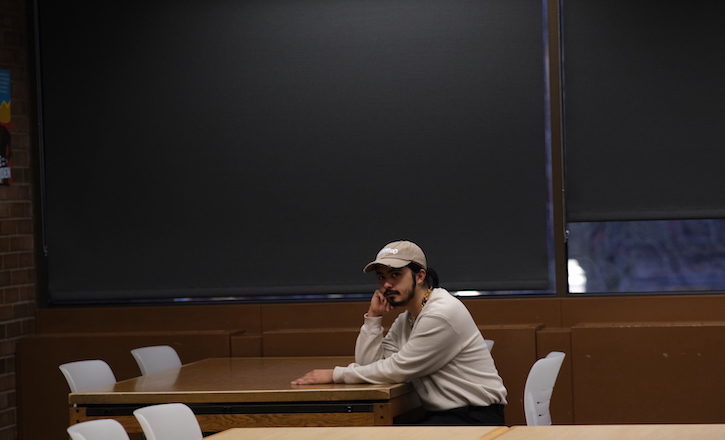The American Federation of Teachers Seattle Local 1789 (AFT) continues their struggle to obtain a living wage for instructors at the Seattle Colleges District (SCD). Although Seattle’s cost-of-living is in perpetual ascent, and faculty at Seattle Central College (SCC) haven’t received a raise in over three years, SCD Administrative Services has yet to agree to offers made by AFT for a salary increase.
The most recent offer by AFT asked for a “10% increase in base wage” and a “one time lump sum payment to all faculty of $5000” with the understanding that these changes are to “correct a historical inequity and should not be considered a wage increase,” according to AFT negotiation team documents. This request differs from their previous proposal of a 5% wage increase. The adjustment can be attributed to the revelation that SCC wasn’t actually going to be in a $15 million budget deficit at the end of the 2021-2022 fiscal year, as forecasted by former Vice Chancellor of Finance and Operations Terrence Hsiao.
Dr. Peter Knutson, professor of anthropology and AFT member at SCC, says: “We were misled about the financial situation of the district last time.” Although the offer was revised after discovering the inaccurate budget information, Administrative Services halted negotiations, claiming that AFT’s offer was regressive bargaining. “We replied that we disagreed,” stated AFT President Annette Stofer. Despite the disagreement, Stofer added that “the two teams are looking for dates for upcoming joint sessions, hopefully in March” to continue the journey for a final decision on the faculty’s 2020-2023 salary re-opener.
In attempts to get a comment from Jennifer Dixon, Vice Chancellor for Human Resources and who Knutson identifies as SCD’s chief negotiator, the Collegian was directed to Earnest Phillips, Associate Vice Chancellor for Communications and Strategic Initiatives for the District, who had no statements in regards to the “regressive bargaining” stance of SCD.
While a fresh 2023-2026 contract is soon to be underway, both AFT and SCD have the intent of solidifying an agreement for the 2020-2023 contract first. How AFT will proceed in their attempts for a salary increase depend on the climate within the group. Stofer stated that “AFT Seattle is currently surveying our faculty to gauge their priorities and wishes. Our negotiating team will use the survey results to guide discussions at the bargaining table.” Phillips had no statement on the plans or stance of the SCD regarding the negotiations.
After the fruitless back-and-forth negotiations between faculty and Administrative Services during 2022, AFT held an end-of-the-year vote to authorize a strike if necessary in 2023. The measure passed with 92% of AFT members voting in favor of the option to strike. According to Knutson, “some people are talking about an escalating series of actions that could potentially lead to a walkout in spring quarter.” While individual opinions may vary on the effectiveness of a strike, Knutson says it could be the only option. “How long are we going to allow this to go on before we sort of make a public statement through withholding labor like this? Can’t go on any more, folks…we’ve got to get real here about what’s happening.”
There is no doubt that the lack of funding for teachers has made it difficult for them to support themselves and their families. With no raises, little to no help from the state, and the cost of living skyrocketing, more and more teachers are forced to stretch themselves thin. “To pay the bills and to buy groceries and rent, you essentially have to go out and work at least two jobs,” says Knutson. “Historically, we always had a high percentage of socially committed teachers who were willing to take lower pay because they believed in changing the world. But increasingly, that’s becoming more and more difficult.”
Lack of funding finds its fault in two places: the SCD and Washington State. Knutson blames the SCD’s failing on an administration that “doesn’t want to divide that pie up differently.”
“They want to continue to reduce the percentage that is going to instruction,” Knutson explains. “Maybe it’s not like they have a master plan to reduce instruction. But what happens is that there’s this internal dynamic where the senior staff essentially get what they want.”
While faculty and SCD continue to negotiate about teacher funding, both sides can agree on one thing: more state funding to community colleges is a must.“Community and Technical College faculty are seriously underpaid,” attests Stofer. “Programs are finding it harder and harder to recruit and retain faculty. Our district has a focus on having a diverse faculty that reflects the students we serve. We need to offer these faculty good salaries and strong support, as well as inclusive community. These things require investments from the state of Washington and commitments from our administrators to prioritize these needs.”
In response, Phillips writes in an email that “securing additional compensation [from the state] during the current legislative session for community college employees is a top priority for the district and the state community college system.”
Faculty’s struggle to stay afloat not only affects their day-to-day lives, but it also directly impacts students. If teachers aren’t paid enough to sustain themselves, how will they be able to cultivate the best learning experience for students? Every student enrolled at SCC has probably noticed a feeling of vacancy that lingers throughout the school. Classes have been cut, programs have been cut, and during certain hours of the day, it feels like you’re walking in an abandoned building. We feel the effects of underfunding everyday.
Sophia Bruscato, an international student at SCC, explains that lack of funding has hindered her passion for singing and taking music courses. “The entire building dedicated for music students and classes, which has hundreds of keyboards, pianos, rooms, and a theater, is completely closed except for third-party usage of renting the theater for random events…the entire building and its resources are useless for hundreds of students who need them and would benefit from them,” Bruscato says. She also laments the shortage of in-person classes. “By summer,” she says, “I will have paid nearly $40,000 to sit in my basement watching online classes. Out of the 73 credits I’ve taken/am taking so far, only three of my classes were in-person. It is obviously not a matter of COVID anymore, it is lack of funding and lack of resources.”
Juan Miguel Jocom, another student at SCC, seconds Bruscato’s frustration. “Less funding means less classes teachers can offer. There were times where I wasn’t able to take the classes that I needed because the school doesn’t have enough open courses for them, and that’s mainly because there are just not enough teachers.”
“The economic constraints on instructors,” Knutson adds, “it’s going to start affecting the types of instructors that you get, and the quality of education they can put in.”
As faculty continue to pursue a necessary pay increase, they carry with them the academic future of SCC students. The disbursement of local finances and state funding should both sufficiently contribute to the salaries of our community’s teachers. However those funds are obtained–be it through mutual agreement, a strike, or merited amounts by the state–adequate pay to teachers is essential for the prosperity and growth of everyone at the college campus.
Adequate pay for faculty is crucial for students’ ability to thrive. If students are given access to ample classes and resources, and their teachers are also equipped with the funds and ability to put their heart and energy into teaching, it creates an environment that allows students to prosper and grow; an environment they paid for. An environment they deserve.
Author

Mo is an alumni of Seattle Central and is currently attending the University of Washington with aspirations to pursue a career in journalism and communications while also delving into anthropology. She aims to explore the world and reveal the stories it wishes to tell through her writing and photography/videography. When she’s not captivated by her journalistic pursuits, she loves to go on adventures, create, watch films, and surf.







Extremely minor point to correct:
Fortunately or unfortunately, we community college faculty are not allowed to call ourselves “professors,” at least not as an official rank of Professor. Our official title is Instructor, though it’s seldom used as a title with a name. State laws and UW/WSU dominance in higher education essentially mandate that only 4-year-school faculty get to have Professor ranks.
[I’m a full-time faculty member in History at North Seattle College.]
Interestingly, Tacoma Community College and their faculty union have included the title of Professor in their contract and is designated as such in the annual contracts received by faculty. I agree that universities have had some sway in this discussion, but perhaps revisiting this in the next contract makes sense.
Stephen C-W, Counselor
South Seattle College
Check out Bellevue College’s appellation: professor is the official appelation. Violation of State law? Reference to the WAC please.
It is technically true that faculty at Seattle Colleges are referred to as Instructors in official documents; however, students refer to their teachers as professors, illustrating that the term’s not inappropriate at all in conversation. One might argue, since the Seattle Colleges District offers four-year degrees and has erased the word “Community” from the names of each college (a change I did not personally favor), that professor is not an inappropriate title in more official terms moving forward.
Johnny Horton, English Instructor and Faculty Advisor for Student Journalism
Seattle Central College